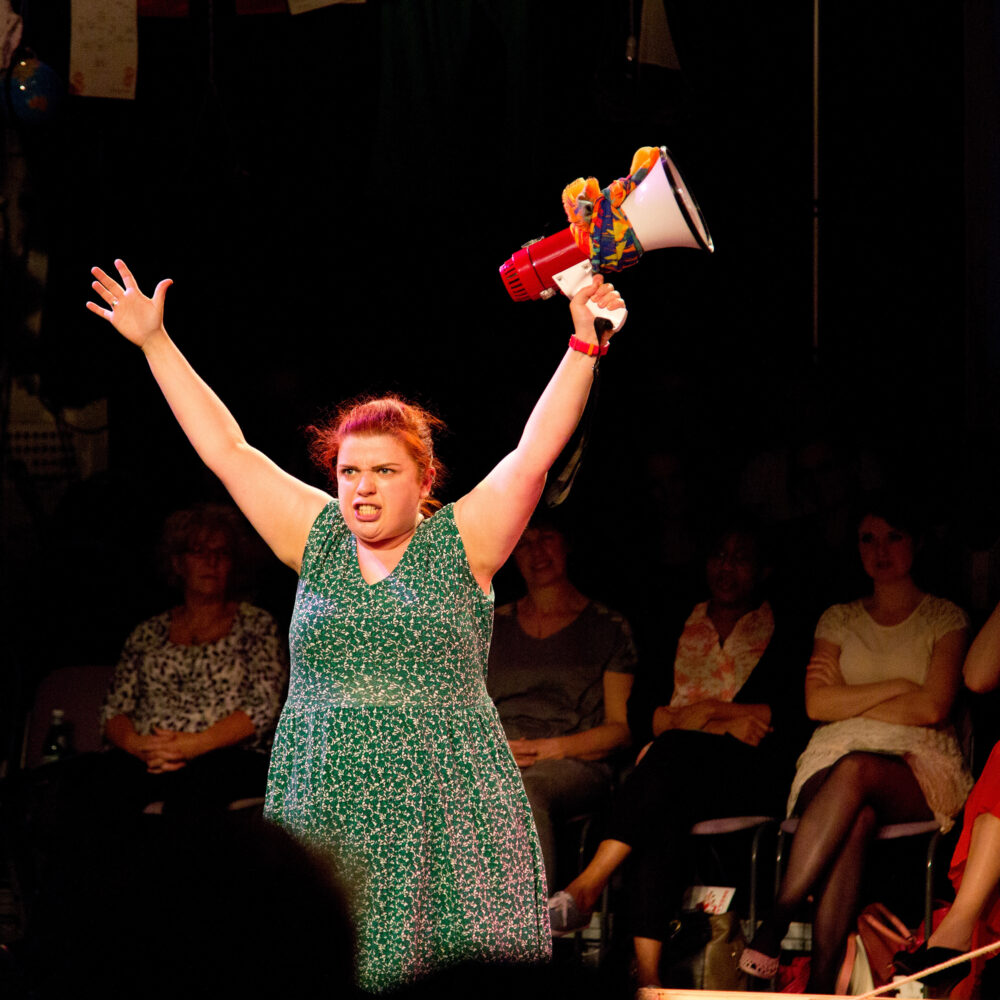



After months of sitting at a laptop staring at ideas, research, spreadsheets, funding applications and endless email trails we are finally in my favourite place – the rehearsal room.
I always find it strange that you create images, flyers, posters, copy, press releases, trailers and sell tickets before the work is even made! It also never feels real until you step into a rehearsal room. Day One feels scary and exciting in equal portions. We first explored Declaration for The Lowry’s brilliant Studio Members scratch event #hereandnow with Plaines Plough’s Roundabout. Since then, it’s felt a little bit like it’s been in a vacuum pack bag – on hold. It took me a while to shift my brain from admin back to creative.
When making anything autobiographical, you always need to assess how much detail you want to share publicly, and that’s a constant process. It feels like socially, we are more ready than we ever have been to talk about mental health, including our own. For me, this is the right time to be talking about my mental health, whilst also publicly, being the first.
The decision to make Declaration wasn’t easy. Essentially, I have decided to declare things that I dislike or hate about myself, (as well as the things I love!) along with the things that make me feel like a snapped twig or a dirty dishcloth. I hope that through sharing my story, others feel safe to explore their own and that people who may not relate to having their own mental health challenges, will leave Declaration with a new understanding and feel able to offer support to others.


To make something so personal, you definitely have to be ready. In preparation Rachel and I decided to meet Bryony Kimmings, a performance artist whose latest work Fake It Until You Make It explores mental health and men through her fiancé Tim’s personal experiences. After having a brew with Bryony, we decided to write a Wellbeing Contract for Declaration. It sounds really formal, but essentially it’s a set of promises between us. The most important one, for me, is that if I feel that I can’t continue because it’s too difficult, I can stop (a performance or rehearsal), without feeling guilty or that I have to push though regardless. Now, even though I don’t think I would ever stop a performance, knowing formally that it’s fine to pull the plug if I need to, immediately lifted a huge weight from my shoulders. One that I didn’t even know was there. It also made me feel much freer with what I choose to share, knowing I have full control of it. I’d recommend it to everyone making autobiographical work.
Rehearsals have been a bit of a rollercoaster already, I’ve done lots of crying, some with laughter and others with sadness, but there have been lots of hugs and of course, dance breaks! We always check in with each other at the start and end of the day with how we are both feeling, and that has helped the process be a really positive and honest one. Particularly because when the bad days hit, you really need the full support of your wall of arms around you.
From the outside, it might seem like it’s just Rachel and I beavering away making Declaration, but the support system we have is much, much bigger. Rachel is an incredible support in the room, but when I leave that room, I have to go home with my head and everything we’ve explored that day. I can’t leave my work at work. That’s when the rest of the support network kicks in. I call one of my best friends at least once a week, Jonathan McGrath is mentoring me and I’m attending counselling sessions once a week. Having support from friends, peers and professionals has been incredibly important, and of course knowing that we’re in the safe arms of The Lowry really helps. Claire Symonds, who runs the supported artists schemes, has been really key in this. She regularly checks in with us, not just in a creative capacity, but also pastoral, making sure we are both doing okay, as individuals and as a team. It’s like having a lovely professional big sister who cares and believes not only in your work, but in you.

We are Art with Heart, and we want to bring together as many people as possible to unlock their creativity and connection to each other. As a registered charity (1205611), donations make it possible to deliver accessible, representative and inclusive projects, to engage more people, employ more freelancers and plan further into the future. Together, we are building Art with Heart, we would love you to join us! CLICK HERE to donate through our Ko-fi campaign.